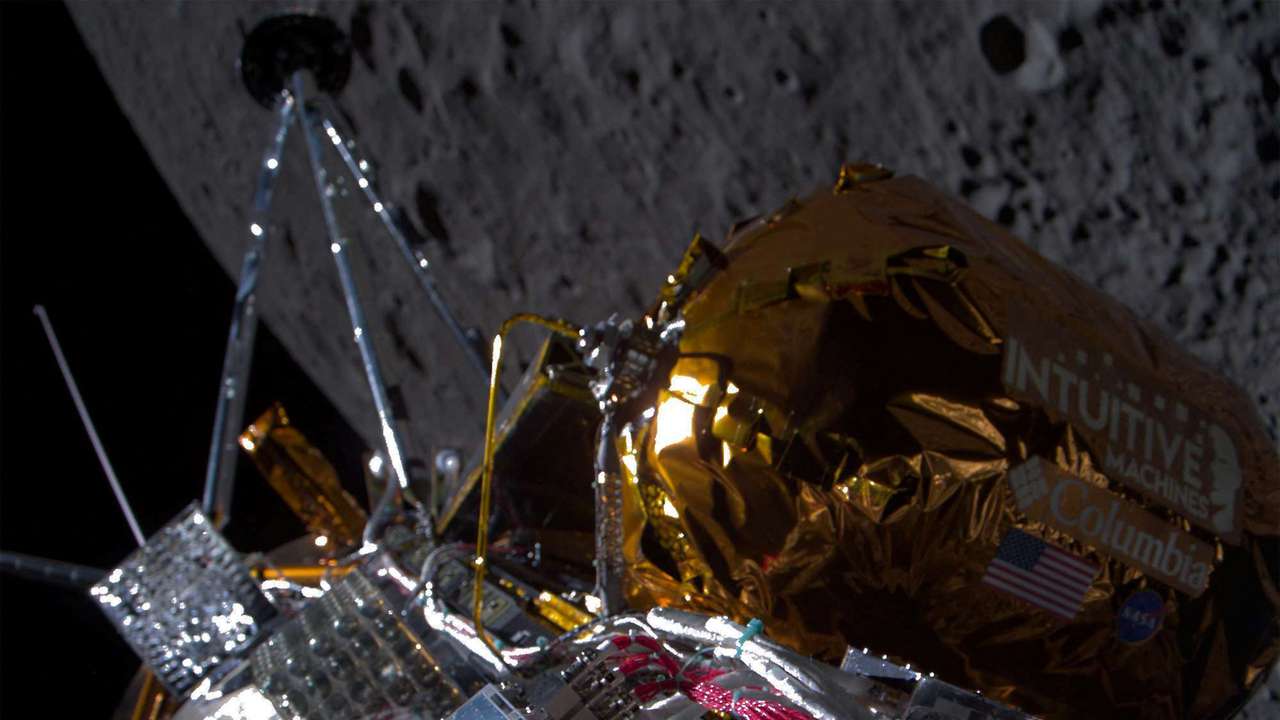Factbox-Moon landing puts new space race startups in spotlight

Factbox-Moon landing puts new space race startups in spotlight
Interest in space startups has spiked after Intuitive Machines became the first private firm to successfully land a spacecraft on the moon, in the first U.S. touchdown on the lunar surface in more than half a century.
Though the lander tipped sideways on the lunar surface, the company is likely to complete its mission and prove the capabilities of such startups.
Declining cost of rocket launches is fueling the boom in the private space industry that could reach about $770 billion by 2027, with some estimating that "New Space" firms could account for a sizable chunk of the market.
Here are some firms working toward exploring the opportunities:
INTUITIVE MACHINES
Intuitive Machines, led by former NASA employees, has two more planned missions to test the possibility of using the Moon's resources for future exploration, and deliver more research tools to the lunar surface for NASA.
The Texas-based company went public in February 2023 through a merger with a blank-check firm and has received $118 million in funding from the U.S. space agency's Commercial Lunar Payload Services (CLPS) program to develop the moon lander.
SPACEX
Elon Musk's SpaceX - one of the world's most valuable startups with a valuation of more than $180 billion - has in recent years led the private sector's efforts in the space industry with its reusable rockets and broadband satellites.
It is set for the third launch of the Starship rocket, the most powerful of its kind, next month.
The long-term target is to land on Mars, the billionaire has said, with the plan of forming a sustainable colony on the red planet and lowering transportation costs into space.
The company's Starlink, a constellation of more than 5,000 satellites, provides broadband to parts of Earth and has achieved cash flow break-even, according to Musk.
ROCKET LAB
Rocket Lab was founded in 2006 by New Zealander Peter Beck and went public in the U.S. in 2021 through a merger with a special purpose acquisition company.
Analysts consider it to be one of the more promising "New Space" companies as it is the most frequent private launcher of rockets after SpaceX.
The company, known for launching satellites into niche orbits on its Electron small rocket, is expected to test its reusable Neutron rocket later this year. The rocket is designed to be able to deliver a large number of satellite to low Earth orbit and even enable missions to Mars and Venus.
Rocket Lab has several hundreds of millions of dollars in federal contracts in the U.S., including production of satellites, launch of spacecraft and a deal to explore delivering cargo around the world using its rockets.
BLUE ORIGIN
Blue Origin, the aerospace company founded by billionaire Jeff Bezos, has been selected by NASA to develop its Blue Moon human landing system for the Artemis V mission at a total contract value of $3.4 billion.
The agency last year also awarded Blue Origin $35 million to advance its Blue Alchemist technology to autonomously make solar cells and oxygen from moon dust and crushed rock.
The company also competes with British business tycoon Richard Branson's Virgin Galactic for space tourism.
FIREFLY AEROSPACE
The company, based in Cedar Park, Texas, is working on a lander named Blue Ghost to deliver private and government payloads to the moon this year, including three under the CLPS program.
Firefly, backed by AE Industrial Partners, is trying to mass-produce its medium-sized rocket, while developing the first stage for Northrop's all-American version of Antares rocket, announced in August 2022.
Last month, the company was chosen to be the launch provider by the National Reconnaissance Office for a 10-year long contract with a value of up to $700 million.
The company was valued at $1.5 billion late last year, after raising about $300 million.
This article was produced by Reuters news agency. It has not been edited by Global South World.